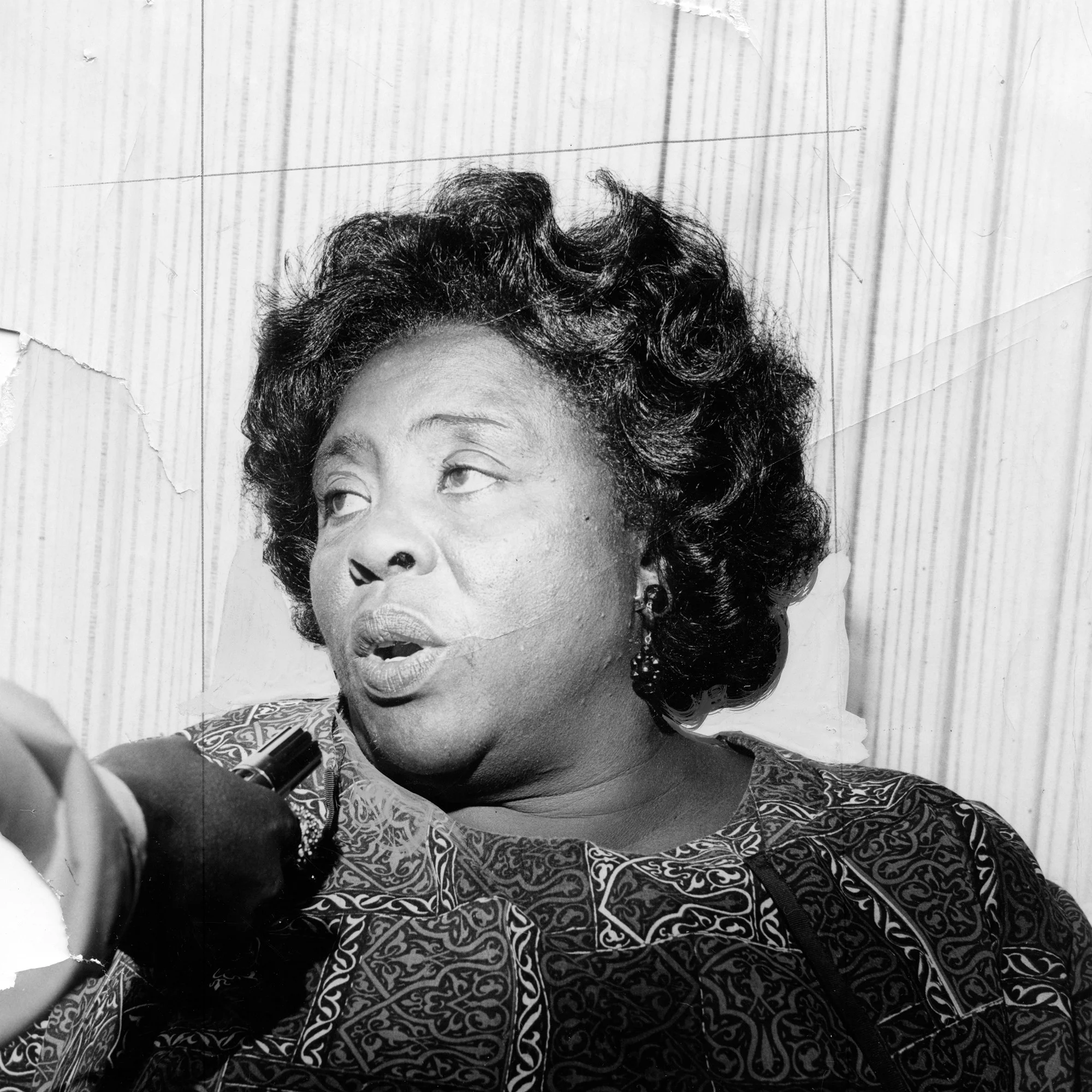Eddie Robinson
Edward Gay Robinson
1919 – 2007
Head football coach Eddie Robinson lived and breathed Grambling State University. For over half a century, Coach Robinson was the face of the Louisiana HBCU. Coach Robinson took over the program in 1941. At that point in the school's history it was known as the Louisiana Negro Normal and Industrial Institute. In Coach Robinson's first season he led the program to a 3–5 record despite having no assistant coaches nor a budget to aid the program with replacing jerseys or hire a trainer.
Thus, Coach Robinson assumed every duty necessary to maintain a viable football program. He taped ankles, he coached every position, he even wrote up game synopsis for the local paper. Coach Robinson's legend did not take long to form, as he led Grambling to an undefeated 8–0 season in just his second year on the job. Success did not come easy, but thanks to Coach Robinson's work ethic and ability to inspire young men, success did come often. Robinson retired in 1997 the winningest coach in college football history with a record of 408 wins, 165 losses, and 15 ties, making Robinson the first college football coach to accumulate 400 wins.
As head coach, Robinson won nine black college football national championships (won by the best football team among HBCUs) and 17 Southwestern Athletic Conference Championships.
Coach Robinson's playing career was equally successful. As a collegiate quarterback, Robinson led Leland College to a total of 18 wins with only one loss in two seasons from 1939–1940. Robinson also served as assistant coach while he was playing at Leland. Robinson entered college believing he wanted to coach college football, and his experience at Leland College confirmed his instincts.
Unfortunately, due to Jim Crow policies, as a black man in the United States, Robinson's only options for coaching football were in HBCUs. Since those positions were highly coveted and seldom available, Robinson's options seemed bleak. Jim Crow did not only segregate drinking fountains and seats on the bus, it had an undeniably detrimental impact on the Black workforce. After earning his bachelor's from Leland, Robinson learned of an opening to coach at Grambling, and the rest is...black history!
Robinson put Grambling on the map! When he took over, the program was only permitted to compete against other all-black institutions. However, Robinson built up a popular persona as a recruiter and developer of talent. Coach Robinson managed to facilitate the signing of hundreds of Grambling players into the National Football League. National recognition of his accomplishments prompted major east coast and midwest schools to start scheduling Grambling during the regular season.
Coach Robinson's legacy is rightfully etched into history based on what he accomplished on the football field. But athletic accomplishments were second to his passion for educating and empowering young men. Robinson took a special interest in providing opportunities for youth with less advantages. As Coach Robinson explained: "I never give up on a kid... anybody can do anything he wants to do in life if he's willing to pay the price. We want them to be better men for having played the game."
























